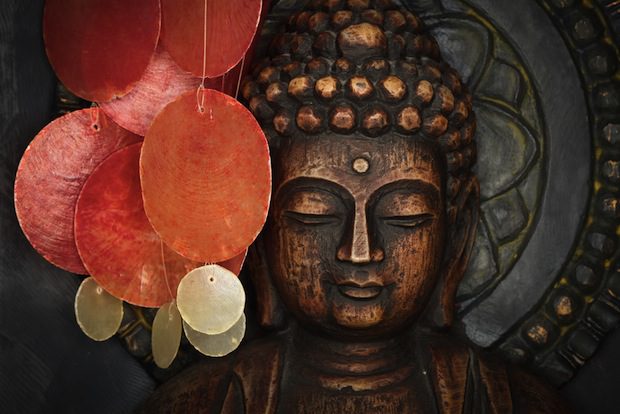How Buddhism Strengthened His Christianity

Sometimes, the comments on this blog really amaze and delight me. Check out this one from Raskolnik, dialoguing with Turmarion:
[Turmarion wrote:] Your earlier posts also seemed relatively moderate or neutral re the culture wars. Over the last couple of years, though, you’ve been more openly on the religiously socially conservative spectrum, and have at times (like now) become rather strident.
It’s funny you frame it that way, because my impression is that you’ve moved distinctly leftward. But it is also true that I have become, as you say, “rather strident.” The reason is straightforward: I used to believe that the Enlightenment project was salvageable, and now I do not. This shift corresponds with my entry into academia; I didn’t know just how deep the rot went, until I got on the inside.
It also reflects my relationship with Buddhism. To make a (very) long story somewhat shorter, I was baptized Orthodox but grew up Catholic, including Catholic primary school, high school, and university. Despite this I was close to the atheist side of agnostic, until on a whim I decided to spend a semester studying abroad in Kathmandu. When I was there, I realized three things: one, everything I thought I knew about Buddhism (especially the part where it is a consummately “rational” or “scientific” religion) was completely wrong; two, after a period of intense debate and argumentation, I came to see that the monastic scholars I was studying with were correct on the metaphysics; three, I couldn’t consistently affirm the truth of the Buddhist teachings I received, and deny the validity and ontological import of my baptism.
The way I have rationalized this, so far, is by seeing “authentic” (I hate that word, but it’s the best I have) religion in terms of lineage. So: authentic Buddhism requires an authentic Buddhist lineage, authentic Christianity requires an authentic Christian lineage. As the holder of both, I am in something of a unique position, which has caught me no small amount of flak from either side. But what I’ve found is that the more genuinely devoted someone is–and not to some wishy-washy liberal conception of ecumenism, but absolutely devoted–the more likely they are to respond positively to my perspective. And my perspective is that there is a coherent, consistent way to intellectually square orthodox Buddhism with orthodox Christianity (though I also think that this intellectual exercise, while helpful to those so inclined, is ultimately unnecessary).
This is the first reason I insist on Apostolic Succession as an ultimate sine qua non for Christianity, because of the central importance of lineage to my intellectual project. The second reason is that I do not believe that Protestant theology can ultimately end up anywhere but in the “Enlightenment” or Romanticism (which are, after all, two sides of the same coin). The flaw is inherent and ineradicable, and it very much concerns the cognitive relationship between the individual religious subject and the religious authority structure. Once you place truth in the realm of subjectivity, you’re already halfway to Obergefell.
In any case, believe it or not, it was taking refuge in the Three Jewels that more or less made me a conservative. I was always a bit on the gadfly-contrarian end of the left, but seeing how liberal self-described “Buddhists” had so thoroughly corrupted the tradition in the West–in a dynamic that closely replicated what I had begun to see as the corruption of Christianity in the West–pushed me firmly in the social conservative camp. It certainly didn’t hurt that, as you point out, the Dalai Lama is as pro-life as the Pope.
As for the Wylie, I ended up returning to Kathmandu after finishing my degree, living and studying there for the next six years, until I returned to the West to begin a Ph.D.
Fascinating, and instructive. I said yesterday that I don’t agree with Raskolnik that Protestants aren’t Christian (and he sort of walked that back), but I do agree with him that Protestantism inevitably leads to Enlightenment liberalism. It doesn’t have to, and clearly many Protestants are actually more orthodox in their moral beliefs than many Catholics and Orthodox Christians. Still, I can’t see how Protestant institutions can hold the line forever. That does not make Protestants non-Christian in my view, but I do see Raskolnik’s point more clearly.
